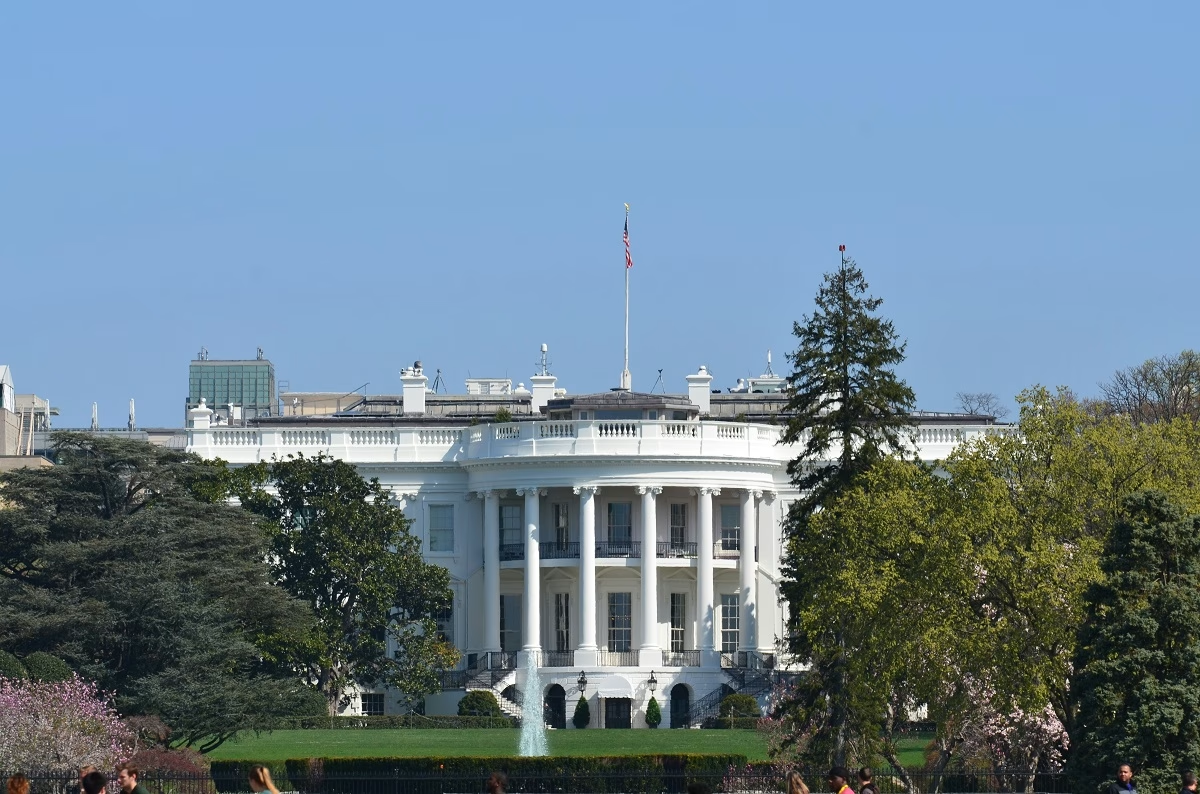
The White House is going on the offensive on a number of fronts to save Trump’s ratings
The Trump administration is launching a large-scale offensive, seeking revenge in the Russiagate case and attacking key symbols of the establishment — from Intel Corporation to Rupert Murdoch’s media empire. At the same time, the White House is imposing tough protectionist tariffs and waging successful ‘culture wars’ defeating liberal discourse in Hollywood. These actions represent a comprehensive strategy to clear the political field and mobilise the conservative electorate.
Trump’s revenge on all fronts
Despite all the difficulties with ratings that have befallen Donald Trump in connection with the ‘Epstein case’ and a series of political failures, he has recently won many significant local victories. Among them is the finale of the scandalous ‘Russiagate.’ Special Counsel Robert Mueller, former director of the FBI, spent two years conducting a major investigation into Trump’s ‘ties’ to Russia. He spent $32 million on the case, and hundreds of people were subjected to searches and biased interrogations as part of the proceedings. Many of Trump’s closest associates, including former National Security Adviser Mike Flynn, former campaign manager Paul Manafort and political strategist Roger Stone, received real prison sentences. Others were simply ruined by lawsuits or stigmatised in the media.
But in his final report, Mueller had to admit that Trump had no ties to Russia, even though in the spring of 2019, the special counsel gave ‘compelling’ testimony to Congress. Admittedly, he behaved erratically at the time: he was confused, lost his train of thought and contradicted himself. It turned out that the Russiagate investigation had undermined Mueller’s health, exacerbating his cognitive problems, possibly due to his internal awareness of the wrongfulness of the process. In fact, he became a ‘nominal special prosecutor’, while the real decisions were made by his entourage, connected with the Democratic establishment, although he took the brunt of the criticism. Mueller is now at a support centre for people with memory problems, and his condition has deteriorated. Although this is negative for him, it may help him avoid the Trump team’s investigation into Russiagate. However, other Obama-era officials will not be able to pretend to be forgetful pensioners, and the president’s team is rejoicing at the opportunity to take revenge on their enemies.
This is already happening in the corporate sector, with the White House attacking Intel, a company that was previously quite loyal to the Democrats. The troubled US chip giant is facing a new scourge in the form of political pressure from Republicans, who are demanding a change in Intel’s current leadership, appointed at the end of 2024. At that time, Lip-Bu Tan, a Malaysian native and graduate of the Massachusetts Institute of Technology, became Intel’s director.

Photo by CNN
He had worked in the Chinese chip market, where he still owns a number of companies. One of them was recently accused in the United States of transferring technological secrets in the semiconductor industry to the Chinese military. Now Republicans are almost openly calling Intel’s current director a ‘Chinese agent’ and this is compounded by the corporation’s overall crisis.
Recently, 15% of Intel’s workforce, or 15,000 employees, were laid off, forcing the corporation to sell off two-thirds of its assets worldwide, from the European Union to Southeast Asia. Plans to build the company’s chip factories in Germany and Poland have been put on hold, even though Berlin has already allocated €10 billion for this, and Warsaw €2 billion. In the US, the corporation received $20 billion in subsidies to build factories in Arizona, Ohio, New Mexico and Oregon, but their launch dates have been pushed back to the 2030s. The Pentagon has allocated $3 billion for the production of chips for military needs and may participate in the partial nationalisation of Intel in the future due to the risk of the company’s collapse. Although this makes no economic sense, the national security aspect is critical: without Intel, the US chip industry will collapse. This is the main reason for the pressure from the state, and the political background allows Republicans to use populist patriotism associated with nationalisation.
At the same time, Trump is taking revenge not only on Intel, but also on more dangerous opponents, such as Rupert Murdoch, who decided to blackmail the president with materials on the ‘Epstein case’. The British media mogul is called the last newspaper baron of a bygone era, and 94-year-old Murdoch continues to try to project his influence on both sides of the Atlantic. But the current conflict with Trump could finally bury his empire. Trump’s lawyers have filed a lawsuit against Murdoch’s media outlets in the United States, specifically the Wall Street Journal, seeking $10 billion in damages. Trump was outraged by the publication of an article about sending a postcard to Epstein, and although it is unlikely that he will win the case, the president is clearly determined to obtain a large sum of money and intimidate blackmailers.
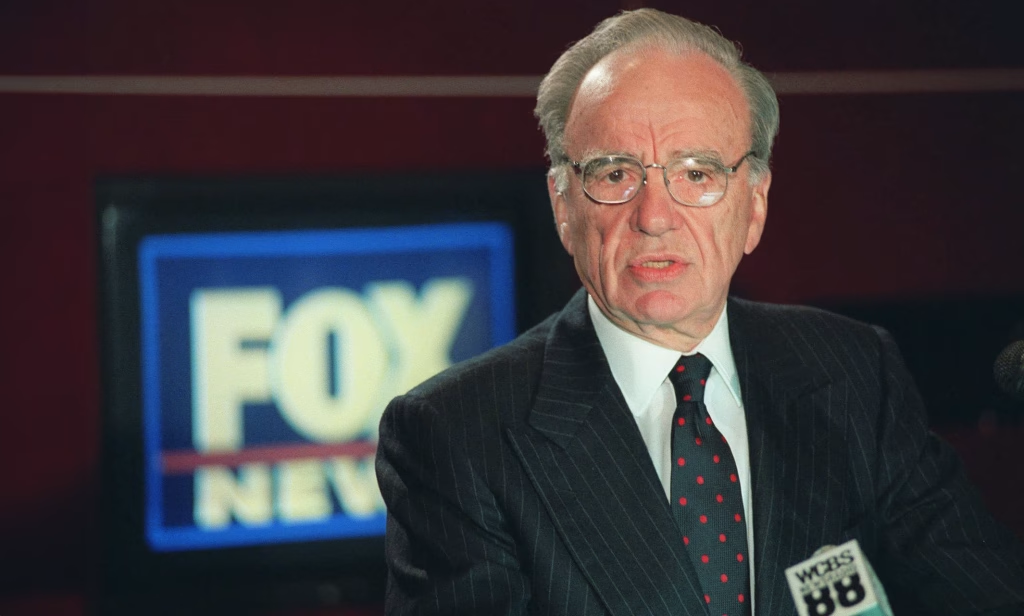
Photo by Richard Drew / AP Photo
This comes on top of the general crisis in mainstream media. For example, Fox News’ audience has declined significantly since Murdoch’s decision to fire Tucker Carlson, who launched his own hugely popular podcast. Other well-known commentators have followed Carlson into the alternative media market, causing Murdoch’s television and newspaper audiences to shrink. In the past, Murdoch was considered a ‘political trendsetter’ and the politicians he supported won primaries in the United States and elections in the United Kingdom. However, Trump managed to neutralise Murdoch’s influence, and now few Republicans pay attention to the latter’s opinion.
Gold tariffs and victory over Disney fuel populism
In the economic sphere, the White House unexpectedly introduced populist tariffs on imports of gold bullion into the United States. This is primarily a blow to Switzerland, which has already been one of the main losers in the current tariff wars, facing 39% duties on its trade with the United States. The authorities’ principled stance prevented an agreement with Trump, as they refused to make any concessions and reduce their trade surplus with the US of $40 billion annually. This surplus is mainly generated by exports of refined gold to America.
Switzerland, the world leader in gold refining, is a key transit hub for physical gold between banks in New York and London. Now, Washington considers this logistics system unfair to the US and real producers, and is imposing harsh tariffs on it. This will lead to an increase in gold prices, which will encourage private and central banks to accumulate physical gold due to fears of logistics disruptions, even though demand is already at its highest level since 1950. For Trump, it is important to be able to take advantage of inflated prices in the closed US domestic market. Earlier, there was talk of auditing Fort Knox and returning gold reserves to the market. If prices soar, selling the reserves would bring in trillions of dollars to resolve the budget crisis in Washington.
Trump also continues to fight liberal ‘knights of the culture wars’. The Disney Corporation is once again under fire. The company lost a court case brought by actress Gina Carano, who accused Disney of discrimination. The former Star Wars star was ‘cancelled’ in 2021 for her support of Republicans and criticism of the summer BLM riots, and all her contracts were terminated in an attempt to literally squeeze Carano out of the acting profession. But in a few years, the agenda changed, and Disney had to apologise to actress Gina Carano, promise cooperation and pay substantial compensation.

This is due to the corporation’s dire situation: 6% of employees laid off, Disney+ losses of $11 billion, and animated film flops with losses of over a billion due to unpopular transgender characters. The $400 million remake of Snow White grossed only $200 million, becoming the apogee of wokeism, even though lead actress Rachel Zegler criticised the plot for its ‘toxic’ traditional roles and threatened Trump. After the change of power in Washington, Zegler herself began to be ‘cancelled’, with contracts being terminated. Disney is removing the racial and gender agenda from future projects, as the pendulum of sentiment in Hollywood has swung in the other direction amid a collapse in filming activity and revenues. This trend was confirmed by the scandal surrounding Sydney Sweeney, who now openly supports the Republicans, although previously this would have cost her career, and the accusations of ‘Nazism’ by the progressive public seem pathetic.
But against the backdrop of a series of successes, Donald Trump‘s promised ‘important announcement’ in the Oval Office turned into a five-minute boast about his ‘economic victories’. Instead of announcing new measures, the US president showed journalists graphs and argued that under his leadership, the average family earned 10 times more than under Biden’s leadership. But the source of this data was merely his long-time supporter, whom Trump unsuccessfully tried to appoint to the Fed’s leadership.
Alongside his self-promotion, Trump announced the introduction of tariffs ranging from 10 to 50% on goods ranging from cars to coffee. Formally, this was to protect American manufacturers, but in reality it threatened to increase prices for the population and put inflationary pressure on global markets. Although the tariffs could have restructured trade flows and opened up niches for American suppliers, many perceived this as populism that would end according to the TACO (Trump Always Chickens Out) principle. Pressure on independent institutions, including the dismissal of the head of the Bureau of Labor Statistics for ‘unwelcome’ data, showed that American politics increasingly resembles the methods that Washington condemns. This confirms that behind the slogans about freedom of speech lies tight control over key structures, and the Trumpists have followed in the footsteps of the Democrats. Thus, Trump’s show is not only part of his domestic campaign, but also a signal to the outside world about the closed and unpredictable nature of the US economy ahead of the elections, which is causing mistrust even among conservative voters.
Federal troops on the streets of American capitals
Against this backdrop, Trump clung to the fact that Democrats were clearly worse than the US president on political and socio-economic issues, even during his worst periods. For example, the crime crisis caused by liberal experiments is engulfing Washington. Recently, in the American capital, a gang of teenagers brutally beat up one of the key employees of the DOGE agency, whom they tried to carjack. The crime was unlikely to have had any political motive, and the situation with rampant crime is clearly spiralling out of control. The District of Columbia has set anti-records for the number of car thefts, and recently a Democratic congressman’s car was stolen at gunpoint, just a five-minute walk from the Capitol.
Many lawmakers are afraid to leave the Capitol building, and the White House is threatening to take control of the capital. The District of Columbia, which was governed by the federal government until 1973, is now under the leadership of liberal mayor and city council officials who are doing a very poor job. A wave of crime has swept not only Washington, but all liberal metropolises in the United States. Trump’s team, taking advantage of their weaknesses to boost ratings, is threatening to cut off federal grants. In New York, a socialist mayor who previously proposed disbanding the ‘racist’ police force and replacing it with social workers could come to power, which would exacerbate the security situation. The White House plans to deport dangerous illegal immigrants not only to El Salvador, but also to Rwanda. However, reducing crime is extremely difficult, and Trump skillfully positions Democrats as defenders of criminals and himself as the only one who can stop them.
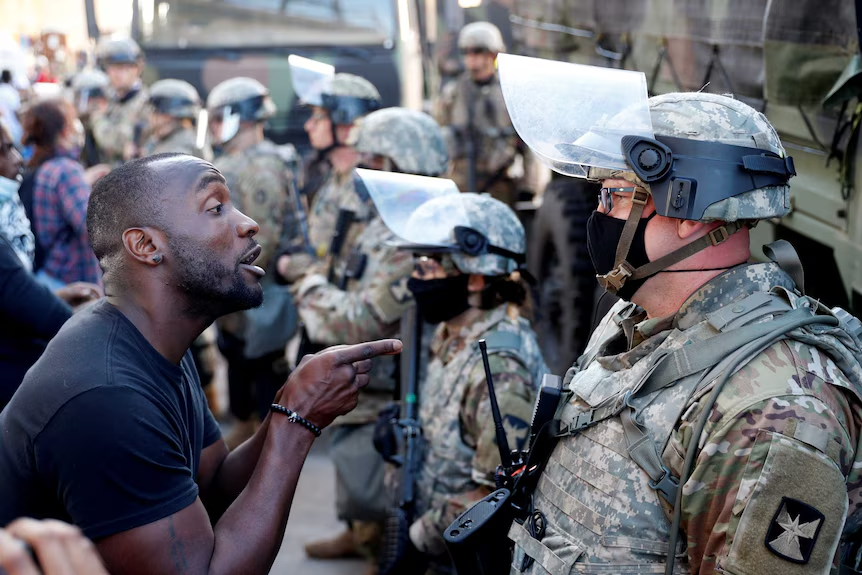
Against the backdrop of a wave of crime that has swept the United States since the BLM riots of 2020, Trump’s team has increasingly resorted to federal agents and the armed forces to restore order. Now they have been sent to protect the American capital from rampant crime. The crime rate in the district was unprecedented, and the local police were unable to cope with their duties, so now the White House hoped that with the help of the feds, they could at least somehow fight back against organised crime.
Earlier, the deployment of several thousand National Guard troops and marines to Los Angeles helped to stop migrant riots, although some of the military has now been withdrawn from the city, with others remaining to guard deportation centres. But other megacities may follow Los Angeles’ example. The next could be Trump’s hometown of New York, where the National Guard has been patrolling the subway since 2024, although this has not helped to combat crime. Trump is now trying to influence the upcoming mayoral election and stop the victory of socialist Zohran Mamdani, who has promised to destroy the police as we know it. If Mamdani succeeds, the crime crisis will continue to worsen and the federal government and troops will have to be called in, which will provoke confrontation with the local authorities. At the same time, military operations are expanding on the southern border of the United States, where a buffer zone has been created to combat cartels.
The main problem for Trump right now is not the moral aspect, but the overload of the Pentagon’s capabilities, which already has to return troops home in an attempt to stabilise the situation within the United States itself. However, to some extent, instability in the areas of migration and crime actually plays into the White House’s hands, covering up its miscalculations in economics and politics. But the US administration is going on the offensive on a number of fronts to save Trump’s ratings, and despite many problems, good old populism is keeping the president afloat.
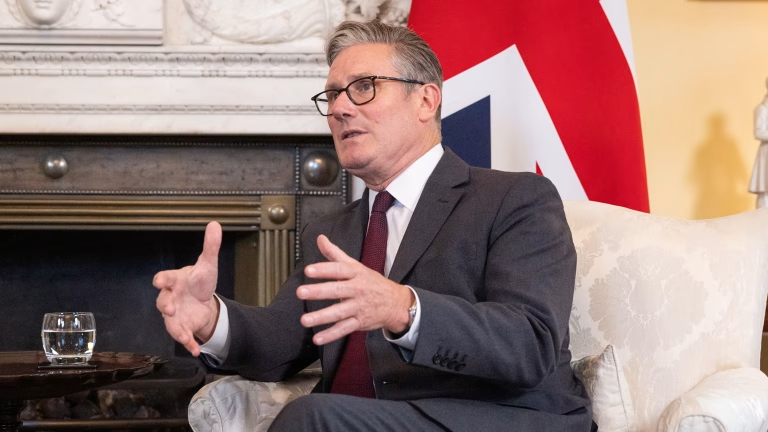
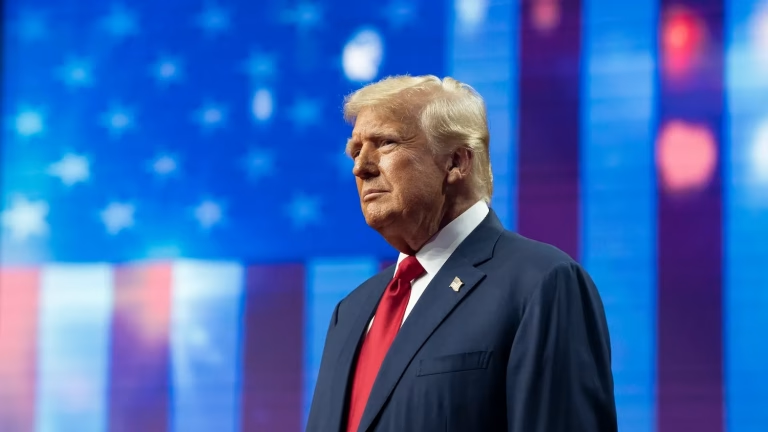
Thanks I have recently been looking for info about this subject for a while and yours is the greatest I have discovered so far However what in regards to the bottom line Are you certain in regards to the supply